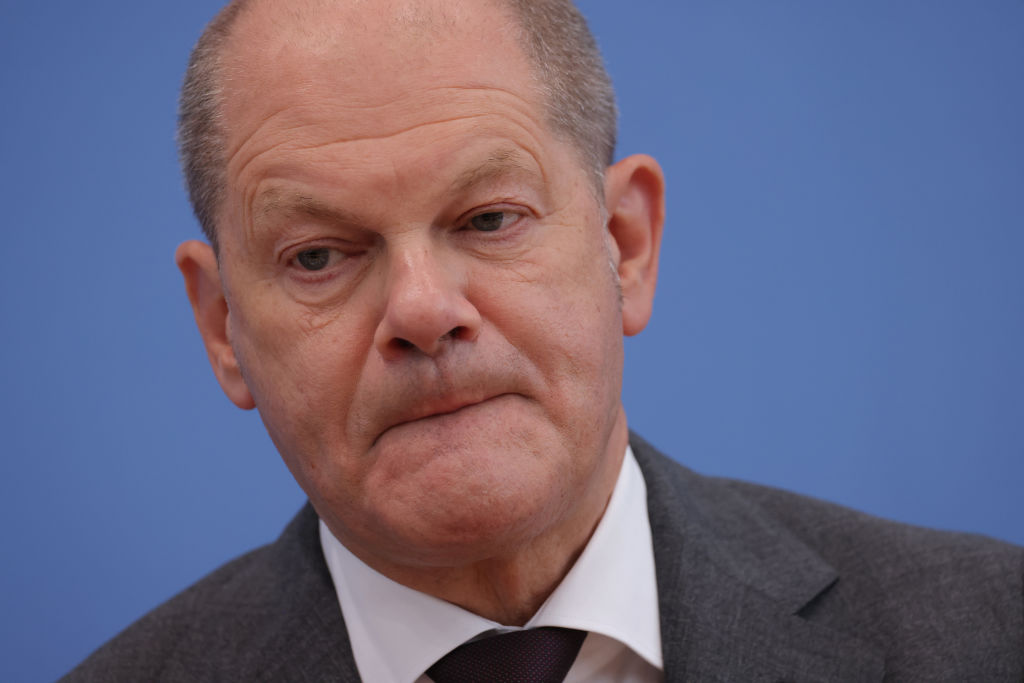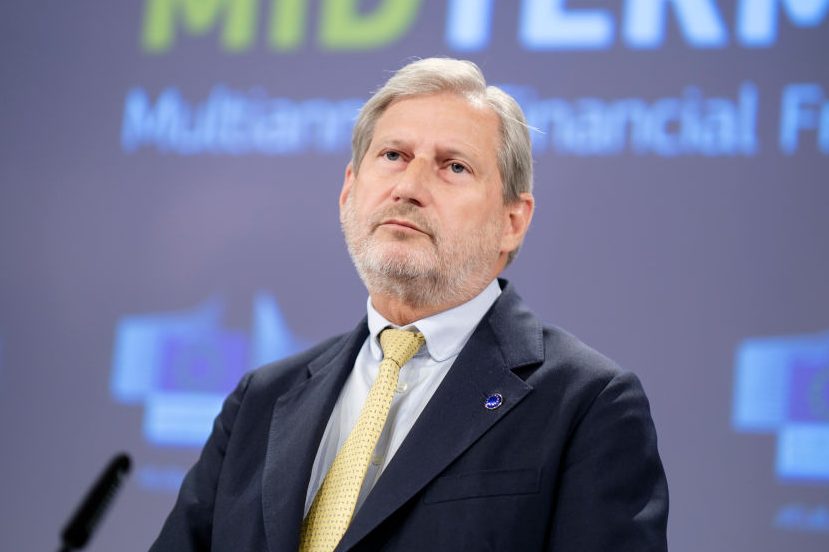Populist party Alternative for Germany (AfD) is the largest “opponent and enemy” of the country’s centre-right, European People’s Party (EPP) leader Manfred Weber has claimed.
The right-wing AfD has rapidly risen in popularity over the past weeks, with its members dismissing Weber as “panicking” in the face of the group’s strong polling.
According to a report by public broadcaster ZDF, Weber has insisted that Germany’s Christian Democratic parties would continue to refuse to cooperate with the AfD, and would actively look to fight it during the European Parliament elections next year.
“The firewall is up,” he told the German press, referring to the so-called cordon sanitaire against the populists, with all of the country’s mainstream political outlets refusing to ever do business with the AfD amid accusations that it is made up of right-wing extremists.
Weber went on to claim that the AfD is aiming to destroy everything the Christian Democrats stand for, accusing the party of looking to undermine Germany’s close relationship with the European Union.
“That is why for us it is not only a political competitor, but also an opponent and enemy,” he insisted, also accusing the party of being a “stirrup holder” for Russian President Vladimir Putin.
Such accusations have been met with derision from AfD parliamentarians, with one MEP describing Weber as losing his cool in the face of the party’s rapid growth.
“The CDU is panicking,” AfD member Gunnar Beck told Brussels Signal, describing Weber’s party as being unwilling to capitalise on the failures of the country’s coalition government.
“The AfD is now the biggest party in the East and is even winning mayoral elections now,” he said. “Weber wants to dispel rumours that the CDU in the East may form a government with the AfD. By ruling out such a possibility, he tries to dissuade Conservative voters from voting AfD.”
Beck also claimed there was a “European dimension” to Weber’s statements, seeing the attack as an attempt to undermine AfD’s growing influence in the European Parliament.
“The EPP is rumoured to planning to work together with right-wing forces in the European Parliament after the elections of 2024,” the MEP said.
“By ruling out cooperation with the AfD, he tries to isolate the AfD from the ID Group, since RN [Rassemblement National] and [Italy’s] Lega may ditch the AfD if that is the price to pay for a seat at the table in Brussels.”
Beck went on to warn that, without the backing of its ID Group allies, the party would be left “largely silenced” in Parliament, even if it managed to return more MEPs than any other in Germany.
Weber is far from the only senior German politician who has lashed out at the AfD in recent weeks, with the party’s rising popularity seemingly rattling the German mainstream.
Even German President Frank-Walter Steinmeier has described the growth of the party as “disturbing”, despite the fact that he is supposed to remain neutral on party politics.
Others have insisted that unprecedented measures should be taken to keep the right-wing populists away from power. Weber’s CDU colleague Mike Mohring is now suggesting the party form coalition governments with the hard-left Die Linke party in certain states with strong AfD support.
“When the situation is difficult, you have to be able to have conversations,” Mohring said, arguing that such a coalition should be on the table in Thuringia in central Germany where the AfD is by far the most popular party.
Such a suggestion is a step too far for others in the party though, with Saxony CDU official Alexander Dierks insisting that the party’s firewall applies to those on both “the left and the right” when they are perceived as extreme.





Spain’s Left could implode as Greece’s did: That might please conservatives but loss of effective opposition doesn’t help anyone